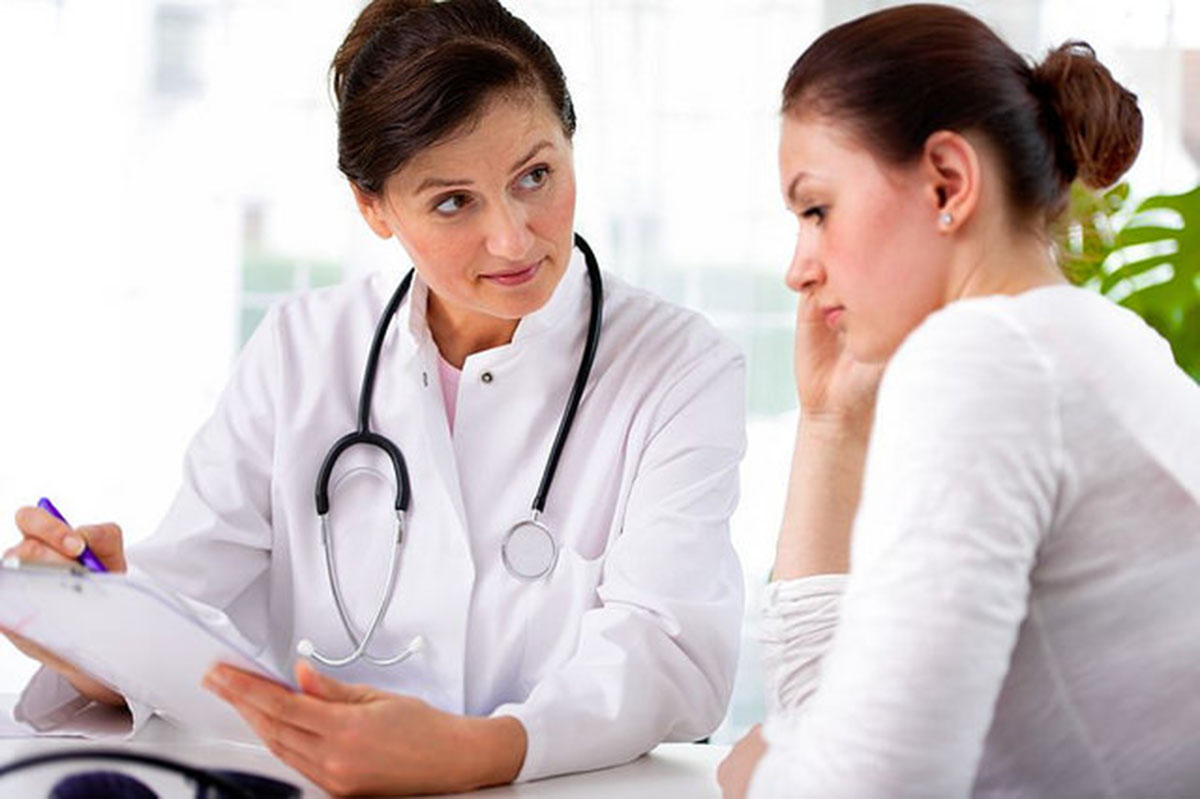Seeing a gynecologist for the first time can be scary — terrifying, in fact, if you have filled your mind with images of having to take your clothes off, undergoing a vaginal examination with a speculum while your legs are in stirrups, and perhaps even experiencing pain. Thankfully, your first trip to the gynecologist doesn't have to be anything like that. A good gynecologist is an ally who helps you take charge of your reproductive health and answers questions you may not be willing to admit to anyone else you even have.
What will happen at your first OBGYN appointment, and how can you make the most of this visit? This short guide is written especially for teens, as that first trip to the gynecologist should ideally take place during the teenage years.

When Should You See A Gynecologist For The First Time?
First things first — what exactly is a gynecologist/obstetrician? OBGYNs are doctors who specialize in female reproductive care, including monitoring pregnancy and childbirth. OBGYNs can specialize in a variety of fields, including preventative health care, surgery, urinary tract disorders, pregnancy and birth, treating reproductive cancers, and adolescent gynecology.
The American Congress of Obstetricians and Gynecologists suggests that all young women have their first gynecology visit between the ages of 13 and 15. Though you may wonder why you need to see a doctor when there probably isn't anything wrong with you, your first trip to the gynecologist serves several important purposes.
If you have been suffering from menstrual cramps, have irregular menstrual cycles, haven't started menstruating by age 15 yet, or have encountered other reproductive issues, your first gynecology appointment offers a wonderful chance to have those issues addressed. Your gynecologist may also spot problems you were not aware you had, enabling you to get treatment.
How To Choose An OBGYN
If you're a teen, your parents or guardians will be involved in the process of choosing an OBGYN. They'll look for an OBGYN who is in-network so that you will be covered by insurance, and if your mom is already seeing an OBGYN she trusts, she may recommend you see the same person or someone else from the same practice.
READ How Women Can Detect Gynecological Cancers Before They Even Go To The Doctor
Because a gynecologist is responsible for caring for such an intimate part of your health, it is important that you are also very comfortable with your gynecologist. You may want to think about what you'd like in a doctor, and let your parents know. One thing many teen girls (and adult women!) find comforting is to have a female OBGYN. If you are sexually active or have a lot of questions about sex, you will want someone open-minded who is very willing to answer your questions about everything from birth control to condoms and sexually transmitted diseases as well.
You can do an internet search to find out what your rights are, and to find out whether or not your parents will be informed about everything you tell your gynecologist. In many countries, sexual health clinics where you have more confidentiality are also available.
Your First OBGYN Appointment: What Exams Will You Have?
What Will Happen During Your First Trip To The OBGYN's Office?
It's quite possible that your first gynecology visit won't even involve taking your clothes off! Many OBGYNs like to start with a chat. Be warned: your gynecologist will ask you personal questions about your body and menstruation. You can expect to be asked whether you are or have been sexually active as well. If you're worried that your doctor will share this information with your parents afterwards, make sure to have a talk about what can and cannot be kept confidential so that you will know where you stand.

Your first OBGYN appointment will probably also involve a general physical exam. That means your gynecologist will check your weight and height, take your blood pressure, and look for general health problems. Your OBGYN will want to examine your breasts to feel for lumps and check your breast development as well.
You may also have an external physical exam during your first OBGYN visit. Here, the doctor will look at your vulva externally. Unless you are experiencing particular issues, such as abnormal menstrual bleeding, potential sexually transmitted diseases, or pregnancy, your first OBGYN visit as a teen probably will not involve a pelvic exam. Unless you are sexually active or have special concerns, pelvic exams actually aren't recommended until age 21.
What Can You Expect From A Pelvic Exam?
If you are going to have a pelvic exam at your first gynecology appointment, that's nothing to be worried about either. Your gynecologist will look at your vulva, check your vagina and cervix — the entrance to the uterus — with a tool called a speculum, and will examine your vagina with a gloved finger. If it is made of metal, the speculum can be heated a little to make you more comfortable during the exam, and its insertion shouldn't hurt — think of it much like inserting a tampon.
One final note: should you want your mom, sister, a friend, or a nurse present during the exam, you can ask for that. Should you prefer that nobody else is present while the OBGYN examines you, make sure you let your parents know that you'd rather they don't see your intimate parts in advance.
What Can You Discuss With Your OBGYN?
If you feel comfortable with your OBGYN (which you should, and if you don't you should ask to see another one), they are the ideal person to address questions about your reproductive health to. A gynecologist is the right person to ask about using condoms, the birth control pill, sexually transmitted diseases, sexual activity in general, and even mood swings, acne, or weight gain you think may be related to hormones. Menstrual problems such as heavy bleeding, irregular bleeding, bleeding in between periods, and cramps should also be addressed to a gynecologist.
READ Predominantly Women's Diseases Found In Men, Too
Finally, your gynecologist will bring up the possibility of getting the Gardasil shot. Gardasil is a vaccine that prevents common strains of HPV, the human papillomavirus, which can cause cervical cancer. This is now recommended for all 11- and 12 year olds, but if you haven't had it yet, getting it between the ages of 13 and 15 is a good idea.
- Photo courtesy of audiolucistore: www.flickr.com/photos/audiolucistore/16255176372/
- Photo courtesy of www.ilmicrofono.it: www.flickr.com/photos/115089924@N02/16256199615/

